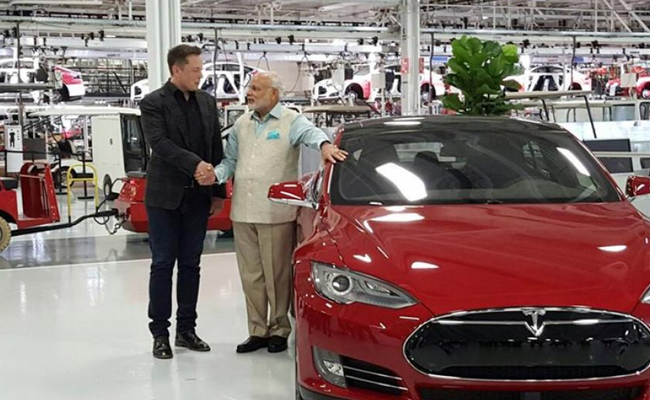
India

There have been speculations about Tesla’s entry into India for several years. The main reason behind this was the hefty import duties on assembled electric vehicles (EVs) imposed by India, which led Tesla to step back at one point. Elon Musk lobbied with the Indian government to reduce taxes and provide exemptions. However, due to concerns that foreign automobile companies might disrupt domestic manufacturers, the Indian government was reluctant to give any exemptions.
Tesla, however, made waves in the electric vehicle market globally, and despite having only seven models, it holds an unbeatable position in the EV market. The company was founded in honor of Nikola Tesla, who invented the electric motor, and while Elon Musk didn’t create the company, his massive investment in it made it his own.
Now, the situation has changed. The Indian government has recently made significant adjustments in the electric vehicle import policy, aimed at attracting international automobile companies while also protecting local manufacturers. Under the new policy, companies promising an investment of Rs 4,150 crores will be allowed to import up to 8,000 vehicles annually with a 15% duty. This change has likely attracted Tesla’s interest to enter the Indian market.
During his visit to the United States, Prime Minister Modi held discussions with Tesla’s CEO, Elon Musk, which soon after led to Tesla taking steps towards its entry into India. The company has already chosen locations in New Delhi's Aerocity near the airport and Mumbai's Bandra-Kurla Complex to open showrooms. Tesla has also posted job openings on LinkedIn. Additionally, Tesla is planning to set up a manufacturing facility in Maharashtra.
However, this expansion is not without challenges. Former US President Donald Trump voiced concerns about the high taxes in India, pointing out that such taxes made selling cars in India difficult. His criticism was based on the fact that many countries impose heavy taxes on the US, benefiting from them. Tesla’s struggles in India are not isolated, as other major American automobile companies also failed to sustain in the Indian market.
In 2017, General Motors exited India, and in 2021, Ford followed suit. Ford couldn’t compete with Indian companies like Hyundai and Maruti, as it failed to understand the price sensitivity of the Indian market. The same happened with the globally popular Harley Davidson, which could not understand the local demand dynamics, leading to its exit as well.
These exits have had a ripple effect, impacting thousands of small and medium-sized enterprises (SMEs) supplying parts to these companies. Despite these challenges, Tesla seems to be stepping into the market with the right strategy. Rather than importing cars from China, the company plans to bring them from its Berlin factory. In India, Tesla will sell right-hand-drive cars, which will be imported from Germany instead of China.
However, there is a significant challenge – the entry-level Tesla models have a price tag of over Rs 50 lakh, which could be a barrier for the majority of Indian consumers. Unlike Maruti or Hyundai, Tesla has only a few models available in its lineup. Despite the high price, it seems that Tesla is determined to establish itself on Indian roads in the near future.
Advertisment